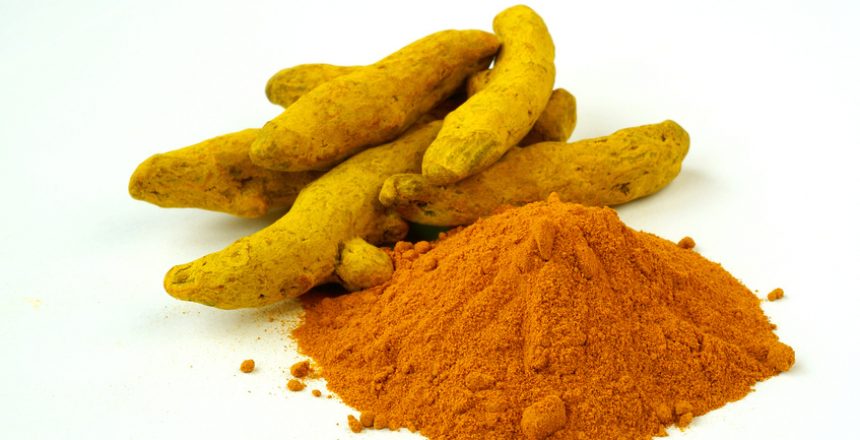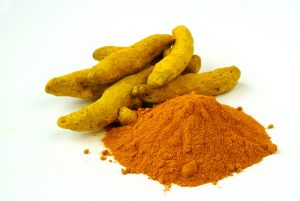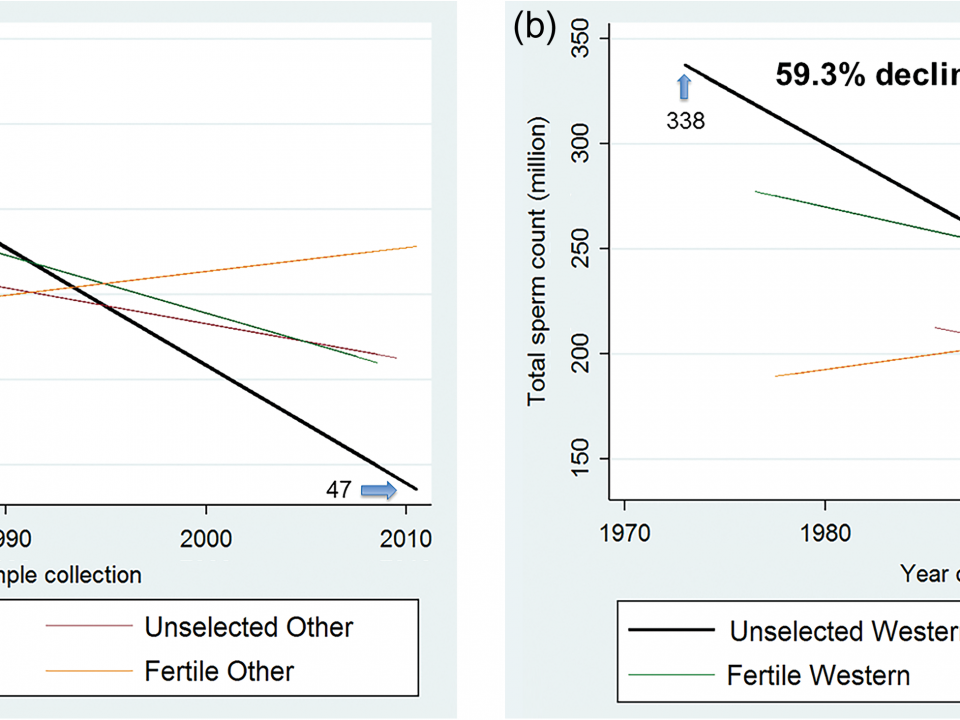 Curcumin extends lifespan and fights depression
Curcumin extends lifespan and fights depression
Curcumin is a fraction of the spice turmeric, comprising up to about 8% of it. Several recent studies have shown that it can extend lifespan in model organisms, namely C. elegans, the fruit fly, and the mouse.
In fruit flies, curcumin treatment extended lifespan by about 25%, and this was mediated by an increase in the enzyme superoxide dismutase, the function of which is to quench free radicals. The fact that the expression of this enzyme was increased gives a clue as to what curcumin is doing: hormesis. Superoxide dismutase is increased as part of the cellular stress defense mechanism, so curcumin increasing it means that cells see curcumin as a toxin which they need to be protected against.
Results appear to have a similar mode of action in C. elegans.
Mice treated with tetrahydrocurcumin, a curcumin metabolite, lived about 10% longer than controls. A review states that “the positive effects of curcumin on lifespan extension likely arise from beneficial regulation of common oxidative stress responses and age-related genes.” This another indication of the hormetic action of curcumin.
Curcumin fights depression
Recently it’s also been found that curcumin may have an antidepressant action: Curcumin for the treatment of major depression: A randomised, double-blind, placebo controlled study. (Co-author is Michael Maes, who has been key in showing links between inflammation and oxidative stress, on the one hand, and depression on the other.) The fact that experimental animals treated with curcumin have decreased levels of oxidative stress would seem to shed some light on the antidepressant action of curcumin. It stimulates the expression of Nrf2, a master regulator of antioxidant genes:
Alteration of the Nrf2–Keap1 interaction enables Nrf2 to translocate to the nucleus, bind to the antioxidant-responsive element (ARE) and initiate the transcription of genes coding for detoxifying enzymes and cytoprotective proteins. This response is also triggered by a class of electrophilic compounds including polyphenols and plant-derived constituents. Recently, the natural antioxidants curcumin and caffeic acid phenethyl ester (CAPE) have been identified as potent inducers of haem oxygenase-1 (HO-1), a redox-sensitive inducible protein that provides protection against various forms of stress. Here, we show that in renal epithelial cells both curcumin and CAPE stimulate the expression of Nrf2 in a concentration- and time-dependent manner.
This also supplies some evidence, in my opinion, that people with depression suffer from a lack of hormesis. For instance, exercise has been shown to have profound effects on depression, and low intake of fruits and vegetables is associated with depression. And obesity is strongly linked to depression. So curcumin likely influences lifespan and depression by virtue of hormesis.
Both ill health in aging as well as depression are at least in part due to the couch potato lifestyle. Hormesis in the form of curcumin and a number of other “biofactors”, plus exercise and a healthy diet can fight both. Although I’m not aware of any studies showing an antidepressant effect of intermittent fasting, it does work through hormesis, and calorie restriction has been shown to have a “marked antidepressant effect”.
Curcumin causes hormesis
As we’ve seen from the above, curcumin extends lifespan and fights depression both through an up-regulation of cellular stress defense mechanisms. As such, it works through hormesis, a powerful effect seen with a number of life-extending compounds. By producing a physiological stress, the organism “fights back” by increasing detoxifying enzymes and anti-inflammatory compounds (“cytokines”).
Curcumin is something I take on a regular basis, several times a week. It should be taken with a fatty meal, since without this it is poorly absorbed. Many supplement manufacturers add piperine, a compound derived from black pepper, to their curcumin, as this has the effect of slowing its metabolism, allowing it to remain in circulation longer. (Piperine itself has been shown to have anti-cancer activity.)
Using curcumin in the process of hormesis is just one example of how challenging the body with “good stress” can lead to better health and longer life. Other examples of hormesis that cause better health include exercise, fasting, resveratrol, and EGCG (from tea).
You can buy curcumin at Amazon; Doctor’s Best Curcumin brand appears to be the purest and best value.











14 Comments
Do you have any suggestions on dose?
Also – and likely a question I will have for any supplement you mention! – does when you take it matter?
My sense is not within the +-3 hours window of exercise (you mentioned previously) and not during fasting (if you do IF)
Thanks!
Bryan, the depression study used 500 mg twice daily. My sense is that for hormesis / life extension, possibly not as much will be needed. I’m currently taking 500 mg curcumin thrice weekly – I figure with my other stuff like resveratrol, I’m probably activating phase 2 enzymes and Nrf2 pathway quite well already. Curcumin does seem to have some effects resveratrol doesn’t, e.g. preventing colon cancer. I doubt if one needs to worry about it interfering with fasting, since it doesn’t raise insulin or amino acids nor does it have an antioxidant effect like vitamin C. However, taking it with meals is advised, since it’s poorly absorbed without fat; many curcumin brands now come with a small dose of piperine (from black pepper), which aids absortption – a good thing. Piperine itself also has a hormetic effect and protects against neurodegeneration. https://www.sciencedirect.com/science/article/pii/S0278691509005912
In sum, if you’re doing everything else right, diet, exercise, fasting, and supplements, curcumin might be superfluous. I started it just recently because I had 25 bucks to spend so I bought some – ’cause that’s the kind of guy I am, always looking for an edge.
I’ve been interested in curcumin for some time.
I ordered some curcumin from Amazon, or so I thought.
It arrived today, and the label actually says “Turmeric Curcumin”. Looking at the ingredients list, it states “Organic Turmeric (Curcuma Longa)”.
While I suppose I should’ve read the product description on Amazon more carefully, I feel this was deceptive marketing. If I wanted to buy turmeric I could’ve hit the spice rack at Wal-Mart.
The capsules are 500mg (plus 5mg perine). I don’t want to bother with the hassle of returning it, especially as it is not the merchant’s fault.
Since curcumin is 8% of turmeric, should I just take 12 capsules per day? At this rate the bottle will last 10 days, long enough for some actual curcumin supplements to arrive.
David, are you sure that’s the case? 500 mg, together with piperine, sounds like curcumin to me. Sometimes a bottle will say something like “curcumin, derived from turmeric”. I certainly hope that’s the case, otherwise what a ripoff.
You can see the product in question here: https://www.amazon.com/Organic-Curcumin-Turmeric-bioavailable-Dr/dp/B00HK6FGIS/ref=cm_cr-mr-title
If you’ll scroll down, you can see the ingredients, which state:
“Ingredients (per capsule):
-500mg Organic Turmeric (Curcuma longa) – 5mg Black Pepper (Bioperine®) (Fruit) Other ingredients: Vegetable capsule (“veggie cap”). No Fillers, binders, or artificial ingredients. ”
Now this information was available when I bought it, so I have to admit I did not do my due diligence. But I was ordering Chirstmas gifts for others and had work projects looming, so I was pressed for time. If the product was only marketed as turmeric, I definitely wouldn’t have ordered it. I feel misled.
The capsules themselves are clear, and the powder inside looks no different than turmeric you’d find in a grocery store spice rack.
Well, it sure looks like it’s just plain old turmeric which is only about 2% curcumin. What’s really interesting is the nearly 2,000 reviews with a cumulative 5 stars. I guess the placebo effect is powerful in this one. I won’t be going through all the reviews, but hasn’t anyone figured this out yet? Also interesting is that there appear to be a number of other brands/products that are selling plain old turmeric. Thanks for bringing this to my attention. Needless to say, this is, if not fraud, at least taking advantage of ignorance on the part of the public.
This is the one I’m taking: Doctor’s Best Curcumin Complex Standardized to 95% curcuminoids.
2%? I suppose I’ll just take 50 of these a day then.
There are a number of other 1 star reviews complaining about this issue. I have added my own voice. Reminds you of no matter how good a product seems, it’s well worth it to scan its worst reviews before ordering. But time is more valuable than money in many cases.
Thank you for your recommendation. Just ordered it.
David, I left a review also. It looks like one of the top-selling products in this category. Their profit margin must be huge.
Yes David! theirs lot of difference between Turmeric and Curcumin… Curcumin is a naturally occurring chemical compound that is found in the spice turmeric. The two words are sometimes used interchangeably, but the technical difference between the two is that turmeric is the yellowish powder used to flavor foods, while curcumin is a chemical contained within turmeric.
because of turmeric low bio-availability, low absorption always suggest CURCUMIN as supplement. i can refer you the only store where you have different formations of curcumin products… exclusively specialized in Mfg. of Curcumin Supplements that’s is PhysicianNaturals… About Bryan’s question yes Curcumin helps to reduce symptoms of major depressive disorderd… Researchers are finding mounting evidence that an anti-inflammatory compound in a common kitchen spice might help fight major depressive disorder (MDD).
Hi Dennis, I know you’re not a huge user of curcumin supplements – but here’s a thought experiment for you: if taking taking highly concentrated EGCGs from green tea extract is potentially harmful for the liver long term, then why would doing the same process to turmeric also not produce deleterious effects in the long term? It seems to me that the recent GTE issues have exposed a potential problem with taking a particular hormetic food ingredient that we know to be beneficial, and then isolating out what we deem to be the active ingredient and delivering it in a highly-concentrated dose.. Maybe the whole point of hormetics is that they must be taken in small but regular doses, not too dissimilar from to what you would derive from consuming real foods (ie cups of green tea, 85% dark chocolate, red wine, berries, etc), and not as highly concentrated ‘1 hit’ doses.. I know that the curcumin in turmeric may not be so bio-available, but as you wrote for berberine, this does not seem to be an issue there since a lot of the benefits of berberine seem to stem from interactions with our gut biome. My instinct is telling me that maybe the optimum way to take advantage of the hormetic effect of curcumin is to simply use turmeric powder in your cooking every day, together with some fat and black pepper…
I know that no evidence has come in yet of any negative effects of curcumin extract, but could that be because there have been less studies performed on curcumin extract since it is not as popular a supplement as GTE found in diet pills? Have you re-considered taking highly concentrated curcumin extract in the light of the recent GTE studies?
Well, would you believe it, look what I just came across, here’s a study from 2015 showing exactly what I was proposing: curcumin in low and medium doses is very beneficial, but in high doses causes cell death. https://www.ncbi.nlm.nih.gov/pmc/articles/PMC4720879/ To quote the article: “The main characteristics of curcumin, justifying its hormesis capability, is to possess both antioxidant and pro-oxidant properties that are closely related to autophagic and cell death activation processes.
In a recent article published in Cell Death Discovery, Moustapha et al.6 have depicted the molecular circuitries that link curcumin to cellular stress and death, and how these pathways can get uncoupled during hormetic responses. We report that curcumin at very low doses (≤1 μM) is indeed an excellent antioxidant but that medium doses of curcumin (in the range of 5–10 μM) operates primarily as an autophagy inducer, correlating with their described capacity to reduce the acetylation of cytoplasmic proteins7 and cell cycle blocker. Finally, at further higher doses (over 25 μM), cell death is induced (all experiments run for 48 h).”
It does seem to strengthen the case that hormetics should only be taken in low, regular doses (ideally part of a whole food meal) – not as isolated, highly concentrated extracts..
Tumeric is a garden grown spice ingredient in traditional Indian foods. Used in small quantities but regularly every day. That nutritional pattern has existed for about 2000 years without major bad health affects. Changing this to concentrated, more ‘bio-avaialable’ tablet doses could indeed cause problems.